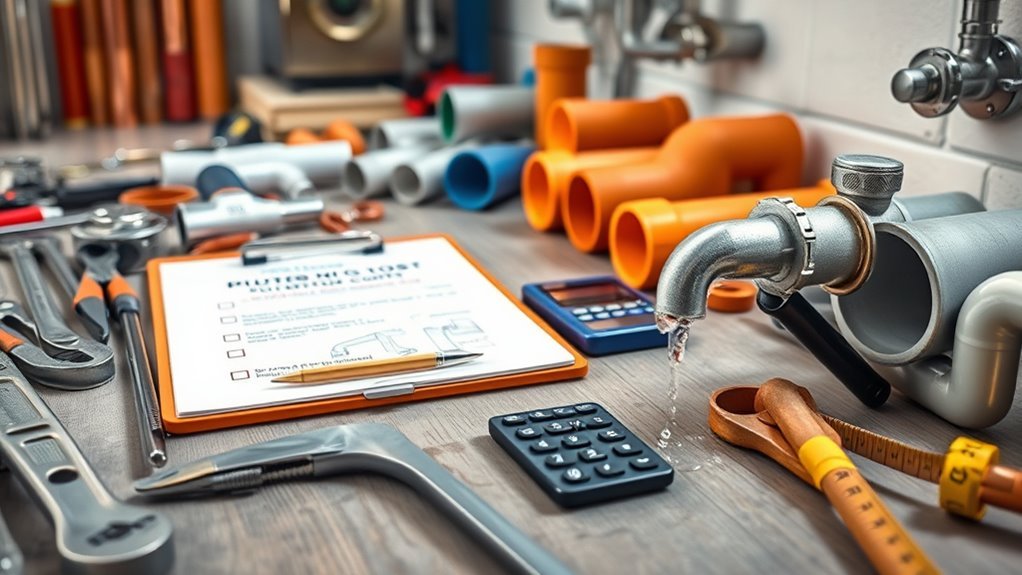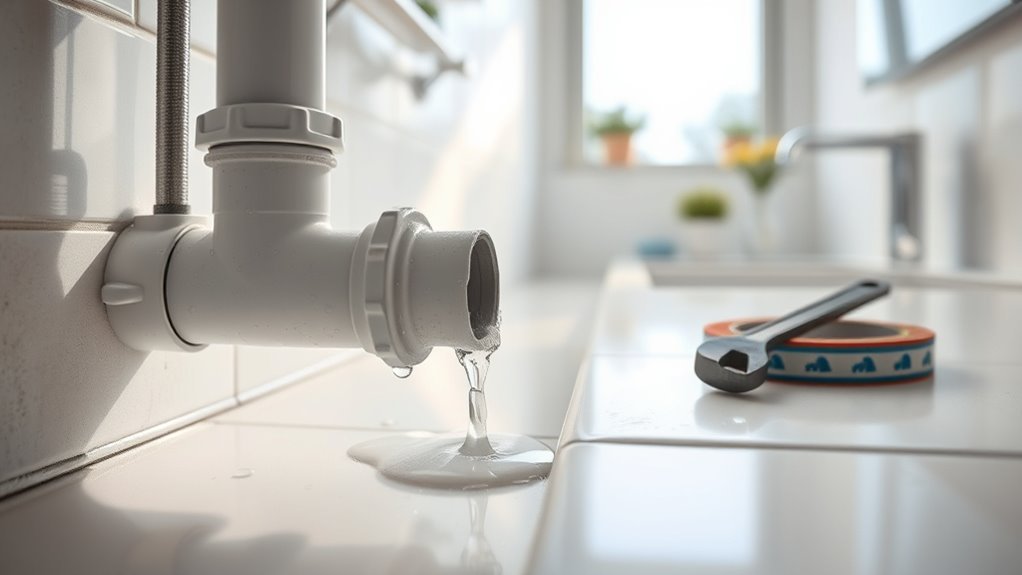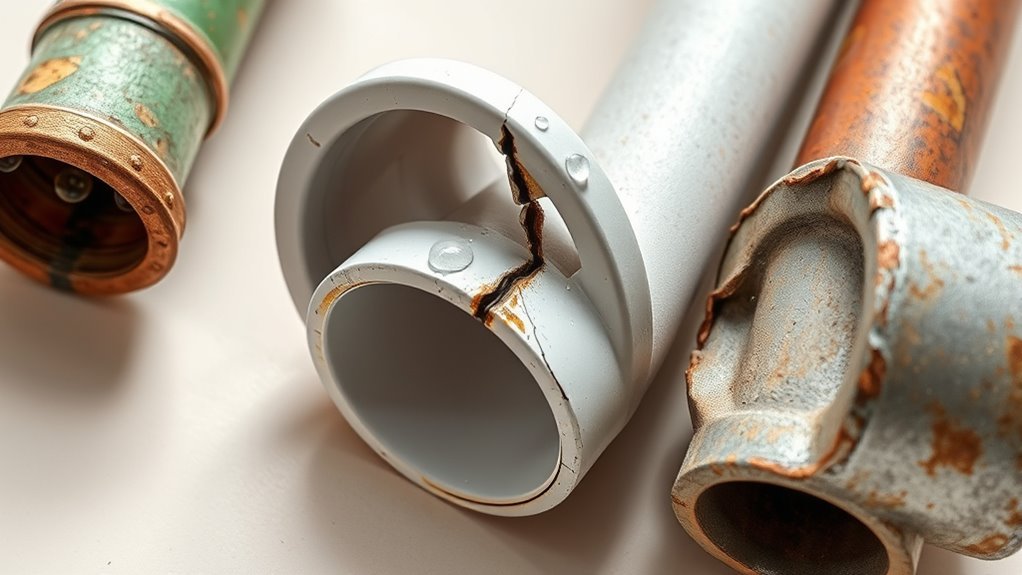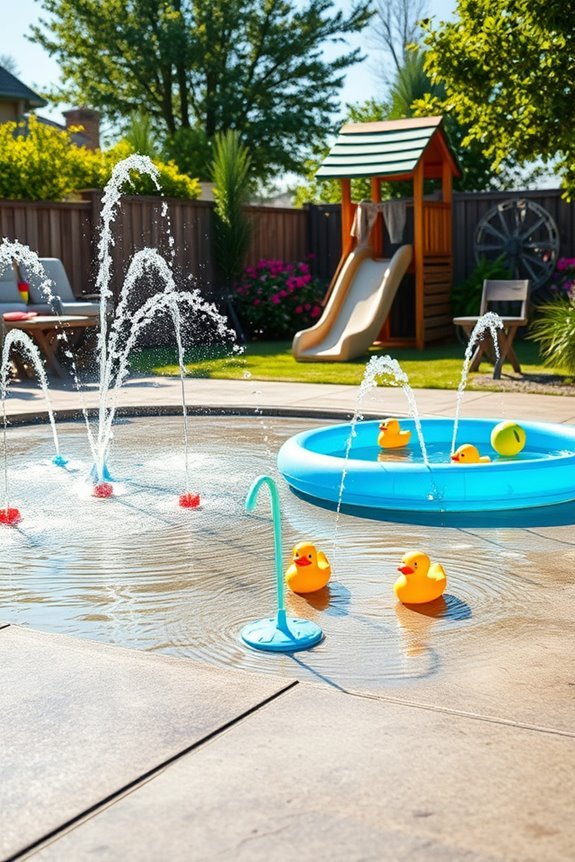How Much Does It Cost for a Plumber to Fix a Broken or Leaking Pipe?
The cost for a plumber to fix a broken or leaking pipe typically ranges from $100 to $1,000. Factors that influence this price include the pipe’s material, the location of the repair, and the severity of the damage. Minor leaks generally cost between $150 and $200 to repair, while burst pipes can reach up to $1,000. Keep in mind that emergency repairs may incur higher charges. For a comprehensive understanding of potential costs and savings, consider consulting with a plumbing professional.
Factors Influencing Plumbing Costs

When dealing with a broken pipe, several key factors will influence the cost of plumbing services:
- Location of the Break: If the pipe is hidden behind walls or underground, it can be more labor-intensive and require specialized equipment to access, driving up costs.
- Type of Pipe: Different materials, such as copper or PVC, have varying repair costs. Knowing the type of pipe can help homeowners anticipate expenses.
- Severity of Damage: Minor leaks are generally easier and cheaper to repair than major ruptures, which may require extensive work.
- Urgency of Repair: Emergency plumbing services often come with higher fees, especially if the repair needs to be done outside of regular hours.
- Regional Labor Rates: Plumbing costs can vary significantly based on geographic location, so local rates will affect the total bill.
- Plumber’s Experience: More experienced plumbers may charge higher rates, but they can also provide more reliable service.
Understanding these factors can help homeowners better prepare for the costs associated with plumbing repairs.
Average Cost of Pipe Repairs
The average cost of pipe repairs varies based on labor rates and material expenses, which can differ by region.
Homeowners should consider these factors to better understand the potential financial implications of pipe issues and plan accordingly.
Factors Influencing Repair Costs
Repair costs for a broken pipe can vary significantly based on key factors. Understanding these can help you anticipate potential expenses and budget effectively:
- Type of Pipe: The material of the pipe—whether PVC, copper, or galvanized steel—affects repair costs.
- Location of the Leak: Leaks hidden in walls or underground may require more labor and thus higher costs due to accessibility issues.
- Extent of Damage: More severe damage can lead to extensive repairs or even a full replacement, which increases costs.
- Urgency of Service: Emergency repairs often come with higher rates due to the need for immediate response.
Average Labor Rates
Labor rates for plumbing repairs typically range from $45 to $150 per hour, influenced by factors such as location and plumber experience.
In urban areas, rates are generally higher due to demand and cost of living, while rural regions may offer lower rates. Experienced plumbers often charge more for their expertise.
Some plumbers provide flat-rate pricing for specific tasks, which can help you budget more effectively.
Always obtain multiple quotes to ensure you’re getting good value for your plumbing needs.
Material Expenses Breakdown
Homeowners can expect to spend between $100 and $500 on average for pipe repairs, with costs influenced by several key factors:
- Type of Pipe: The material—copper, PVC, or PEX—affects pricing.
- Length of Pipe: Longer repairs require more materials, impacting overall costs.
- Fittings and Connectors: Additional components can increase expenses.
- Accessibility: Pipes in hard-to-reach areas may necessitate more materials.
Cost of Emergency Plumbing Services

The cost of emergency plumbing services can fluctuate based on several key factors: the time of day, the complexity of the plumbing issue, and the plumber’s level of experience.
Typically, emergency rates are higher than regular plumbing fees due to the urgent nature of the repairs.
To effectively prepare for potential plumbing emergencies, homeowners should consider these variables when budgeting for unexpected repairs.
Factors Influencing Costs
When it comes to emergency plumbing services, several factors can significantly impact the costs you might incur.
Here’s a breakdown of the key elements:
- Urgency of the Issue: The more urgent the plumbing problem, the higher the fees. Plumbers often charge extra for immediate responses to prevent further damage.
- Time of Day: Services requested during off-hours, like late nights or weekends, usually come with premium rates compared to regular business hours.
- Complexity of the Problem: If your plumbing issue is complex and requires specialized tools or expertise, expect the costs to rise accordingly.
- Geographic Location: Pricing can vary significantly based on location. Urban areas typically have higher service charges than rural regions due to demand and market rates.
Understanding these factors can help you anticipate potential costs when seeking emergency plumbing assistance.
Average Emergency Rates
Emergency plumbing services typically cost between $150 and $300, depending on the issue’s severity and the time of service.
Rates may rise by up to 50% during evenings and weekends. Additional factors like travel distance and repair complexity can also affect pricing.
Many plumbers charge a flat service fee for emergency calls, usually between $50 and $100.
Understanding these average costs will help you budget for potential plumbing emergencies effectively.
Hourly Rates for Plumbers
The hourly rate for a plumber can vary significantly based on several key factors, including location, experience, and job complexity. Typically, you can expect to pay between $45 and $200 per hour. Rates are generally higher in urban areas and for experienced plumbers who bring valuable skills and reliability to the job.
Additionally, be aware that emergency plumbing services often come with added charges.
Key factors influencing plumbing rates include:
- Location: Urban areas typically have higher costs.
- Experience: Skilled plumbers charge more for their expertise.
- Job Complexity: More complex jobs may require additional time and cost.
- Emergency Services: Rates can increase for urgent calls or off-hours work.
Being aware of these factors can help you budget effectively for plumbing services and choose a plumber that aligns with your needs.
Fixed vs. Variable Pricing Models
When choosing plumbing services, understanding the pricing models—fixed and variable—is essential for homeowners.
Fixed Pricing offers a set cost for services, allowing for straightforward budgeting without surprises. This model is ideal for those who prefer predictability in expenses.
Variable Pricing, on the other hand, may change based on the specific details of the job. This can lead to higher costs if unexpected complications arise, but it may also accurately reflect the work performed.
| Pricing Model | Description |
|---|---|
| Fixed | Set price regardless of time or effort |
| Variable | Price can change based on job specifics |
Consider your unique needs when selecting a pricing model. Fixed pricing ensures you know what to expect, while variable pricing can offer a more tailored approach to the actual work required. Understanding these options empowers you to make informed decisions about your plumbing services.
Types of Pipe Damage

Pipe damage can present in several ways, each with specific causes and effects that homeowners should be aware of for effective maintenance.
Here are the main types of pipe damage:
- Corrosion: This occurs primarily due to water quality and the age of the pipes, compromising their strength and leading to potential failures.
- Cracks: Temperature changes or ground movement can create cracks, which may result in leaks if not addressed promptly.
- Leaks: These typically happen at joints or from deteriorating sections of the pipe, leading to water damage and the risk of mold growth in the home.
- Blockages: Often caused by debris, tree roots, or accumulation of materials, blockages can increase pressure within the pipes, raising the risk of bursts.
Timely recognition of these issues is crucial for preventing extensive damage.
Regular inspections and maintenance of your plumbing system can significantly reduce risks and ensure its longevity.
Cost Breakdown for Common Repairs
Understanding the cost breakdown for common plumbing repairs is crucial for homeowners dealing with pipe issues. Average repair costs can vary based on the extent of damage and local labor rates.
It’s important to weigh the benefits of DIY solutions against hiring a professional, as this choice can significantly affect your overall expenses.
For a more accurate estimate of repair costs, consider obtaining quotes from local plumbers and assessing the severity of the issue at hand.
Average Repair Costs
When faced with a broken pipe, homeowners typically incur repair costs ranging from $150 to $350.
The exact amount depends on factors such as the damage’s severity and the break’s location.
Here are common repair scenarios and their associated costs:
- Minor leaks: $150 – $200
- Pipe replacement: $200 – $500
- Burst pipes: $300 – $1,000
- Emergency services: $200 – $500
Costs may increase if the plumbing is in a hard-to-reach area, the pipe material is more expensive, or if immediate service is required.
Being aware of these average costs can help you budget for potential plumbing repairs effectively.
Factors Affecting Pricing
When it comes to plumbing repairs, particularly for broken pipes, several key factors can significantly affect the pricing.
Understanding these elements can help homeowners gauge potential costs effectively.
- Complexity of Repair: More intricate jobs typically lead to higher costs due to the expertise required.
- Location of Pipe: Repairs in difficult-to-reach areas often incur additional expenses.
- Urgency: Emergency services usually attract increased rates.
- Material Type: Choosing premium materials can elevate the overall bill.
- Plumber’s Experience Level: More skilled plumbers may charge higher rates for their services.
DIY vs. Professional
When considering whether to handle plumbing repairs yourself or hire a professional, it’s crucial to evaluate both cost-effectiveness and skill level.
Here are the key factors to help you make an informed decision:
- Cost of Tools and Materials: DIY repairs require purchasing tools, which can increase your overall expenses.
- Time Consideration: Inexperienced individuals may take longer to complete repairs, potentially leading to further inconveniences.
- Risk of Damage: Errors in DIY repairs can cause additional damage, resulting in higher costs for future repairs.
- Professional Expertise: Hiring a plumber ensures a quick and effective solution, leveraging their experience to avoid common pitfalls.
Materials and Their Impact on Cost
How do materials affect the cost of repairing a broken pipe? The choice of materials significantly influences repair expenses.
Common options include PVC, copper, and PEX. PVC is typically the most affordable, making it ideal for budget-friendly repairs. Copper pipes are durable but come with higher costs due to material and installation requirements. PEX offers a middle ground, providing flexibility but often at a higher price than PVC.
Additionally, specific fittings and tools may be needed for certain materials, which can further increase costs. Therefore, selecting the right material not only impacts immediate expenses but also the long-term durability and performance of your plumbing system.
Geographic Location and Pricing Variations
The cost of repairing a broken pipe varies significantly based on geographic location.
Here are the key factors affecting pricing:
- Urban Areas: Higher labor costs due to increased demand and a higher cost of living.
- Rural Locations: Often provide more affordable repair options.
- Local Competition: Can lead to lower prices in areas with multiple plumbing services.
- Seasonal Weather: Urgency and costs may increase during harsh weather conditions.
Understanding these factors is crucial for homeowners when budgeting for plumbing repairs in their specific area.
The Importance of Hiring Licensed Plumbers
Hiring a licensed plumber is crucial for homeowners seeking reliable plumbing services. While the allure of saving money with unlicensed plumbers may be tempting, the risks involved can lead to higher costs in the long run.
Licensed plumbers have the training and expertise to tackle complex plumbing issues while adhering to local building codes and regulations. This ensures that repairs are not only effective but also compliant, significantly reducing the risk of future problems.
Moreover, licensed plumbers carry insurance, which protects homeowners from potential damages during repairs. This added layer of security is vital, as it limits financial liability in case of accidents.
By choosing a licensed professional, you are not just ensuring quality workmanship; you are also gaining peace of mind knowing your plumbing system is in skilled hands.
Invest wisely and opt for a licensed plumber to safeguard your home and plumbing system.
DIY vs. Professional Plumbing Costs
When dealing with a broken pipe, homeowners often consider whether to attempt a DIY repair or hire a professional plumber.
DIY repairs may seem like a budget-friendly option, but they can result in unexpected costs if things go wrong.
On the other hand, hiring a professional ensures the job is done correctly, though it comes with a higher initial cost.
Weighing the potential long-term savings and risks is crucial in making the right choice for your plumbing needs.
Cost of DIY Repairs
When considering DIY repairs for a broken pipe, homeowners should evaluate potential savings against the risks of inadequate repairs.
Here are key factors to consider:
- Material Costs: The cost of tools and replacement parts can accumulate quickly.
- Time Investment: DIY repairs may take considerable time, potentially leading to ongoing issues.
- Skill Level: Inexperience can result in improper fixes or safety hazards.
- Long-Term Consequences: Poor repairs can cause recurring leaks or structural damage, ultimately increasing costs.
Weighing these factors is crucial for making an informed choice about DIY repairs.
Hiring a Professional Plumber
When deciding whether to hire a professional plumber, homeowners should assess the complexity of their plumbing issue and potential costs. Professional plumbers bring expertise and specialized tools that can prevent further damage and save time. While DIY repairs may seem cheaper initially, they often lead to expensive mistakes.
| Aspect | Professional Plumber | DIY Repair |
|---|---|---|
| Cost | Generally higher | Lower upfront cost |
| Time Efficiency | Quick resolution | Can be time-consuming |
| Expertise | Licensed professionals | Limited knowledge |
Homeowners should consider the immediate costs versus potential long-term savings and risks associated with each option to make an informed decision.
Long-Term Savings With Professional Repairs
Investing in professional plumbing repairs is a smart move for homeowners looking to save money in the long run. Although the initial costs may seem high, the advantages often justify the expense.
Here’s how professional plumbing services can lead to significant savings:
- Prevent Future Problems: Skilled plumbers not only fix current issues but also identify potential problems, preventing costly repairs down the line.
- Reduce Water Bills: Efficient plumbing systems minimize leaks and wastage, leading to lower water bills.
- Avoid Water Damage and Mold: Addressing plumbing issues promptly reduces the risk of water damage and mold growth, which can be expensive to remediate.
- Boost Energy Efficiency: Professional installations ensure that plumbing systems operate optimally, enhancing energy efficiency and lowering utility costs.
- Increase Property Value: Reliable plumbing systems contribute to a home’s overall value, making it more appealing to buyers.
- Minimize Emergency Repairs: Regular maintenance and professional repairs decrease the likelihood of unexpected emergencies, saving homeowners both time and money.
Additional Costs to Consider
When hiring a plumber for a broken pipe, it’s crucial to recognize that repair costs can involve more than just the fix itself.
Homeowners should anticipate additional expenses such as diagnostic fees for assessing the plumbing issue, costs for materials like pipes and fittings, and potential charges for necessary permits or inspections.
If the repair requires access to difficult areas, labor costs may also rise.
Additionally, consider the costs of water damage remediation or mold treatment if the leak has been ongoing.
Being aware of these factors will help you budget effectively and prevent unexpected financial burdens during the repair process.
Tips for Reducing Plumbing Expenses
To effectively reduce plumbing expenses, homeowners can implement several proactive strategies.
Here are key measures to minimize costs:
- Schedule Routine Inspections: Regularly check your plumbing system to identify potential issues early before they become costly repairs.
- Fix Minor Leaks Promptly: Address small leaks immediately to prevent increased water bills and further damage.
- Install Water-Efficient Fixtures: Upgrade to water-saving faucets, showerheads, and toilets to conserve water and lower utility bills.
- Educate Household Members: Teach everyone in your home about proper waste disposal to avoid clogs and plumbing backups.
When to Seek Multiple Quotes
To ensure homeowners receive the best value for plumbing repairs, seeking multiple quotes is essential.
Start by obtaining estimates from at least three different plumbing contractors, especially for major repairs like broken or leaking pipes. This allows for price comparison, evaluation of proposed work, and assessment of each plumber’s experience.
Multiple quotes can also highlight pricing discrepancies and varying solutions, enabling informed decision-making.
Beyond cost, consider reviews and warranties to select the most qualified professional.
Thorough research leads to better plumbing outcomes.
Conclusion
The cost to repair a broken or leaking pipe typically ranges from $150 to $500, depending on various factors such as the location of the leak, the complexity of the repair, and the plumber’s rates. Promptly addressing a leaking pipe is essential to prevent further damage and higher repair costs in the future. Hiring a professional plumber ensures a reliable fix and peace of mind, protecting your home from potential water damage.


